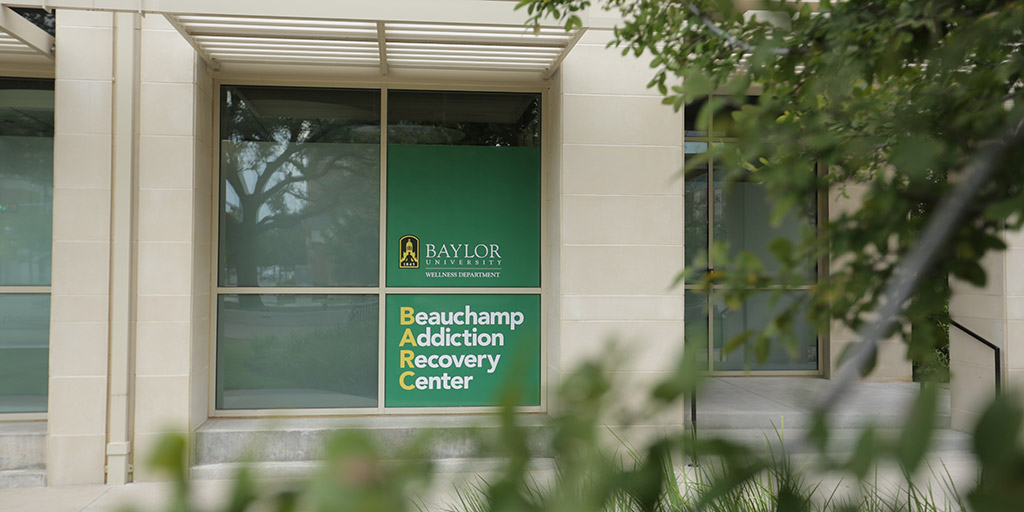Baylor center offers community, support for students recovering from addiction

There’s a group of students at Baylor that harness what one campus leader calls a “superpower.” They support one another, show up to class, refuse to skip meetings, have higher GPAs than average, and even get a proper night’s sleep — because they’ve learned the pitfalls that come with lack of balance in their lives.
Who are these super-students? Often you can find them in the BARC — the Beauchamp Addiction Recovery Center. They’ve battled substance use disorder and addiction, and are now joining other students in recovery to overcome their challenges and meet their academic goals.
When the BARC was created last year, it was the culmination of years of hard work spearheaded by Lilly Ettinger, BA ’11, MDiv ’15, Baylor’s senior coordinator for recovery services, and made possible by gifts from Baylor benefactors Bob and Laura Beauchamp and the Baptist General Convention of Texas. What began as an interest meeting with a flyer on the wall while Ettinger herself was a Truett Seminary student has grown to serve more than 40 students in a space of their own in East Village.
“To have a dedicated space is huge. A home like this creates community,” Ettinger says. “This new home lets students know they’re valued. Knowing that you’re not alone and can be around other people who won’t judge you and can share their lived experience — that’s huge. Being around people who understand the difficulty of recovery is so important.”
Students and substance abuse disorder isn’t a topic widely discussed by most when thinking about higher ed. But according to the Association of Recovery in Higher Education, one in five 18-21 year olds meet substance use disorder criteria. For Baylor, demonstrating a caring community to students battling addiction meant creating a resource and a community for those students.
The BARC is a non-clinical program providing support services such as counseling, recovery coaches, referral to off-campus rehabilitation, continued support for students who have completed rehabilitation, reintegration support for students returning to campus, prayer groups, sober social events and more. BARC partners with numerous Baylor and community resources, including the Baylor University Counseling Center, Baylor Spiritual Life, and health care providers in the Waco area to provide holistic service and support to students.
Ettinger says that, time and time again, she’s seen both the value that recovery services bring to students and the value those students bring to campus.
“I think that students who are in recovery, once they’re in that stable place, harness this secret superpower. Students in recovery bring a ton of assets to campus,” she says. “Our students, more than six months sober, don’t no-show. They attend meetings, they show up to classes, and take care of their academics and themselves. National data said they’re more likely to stay in school, have higher GPAs than average, and are more likely to graduate. They get a good night’s sleep because they know that part of recovery is living a balanced life. So, they do those things because they know what’s important as they achieve their goals.”
Sic ’em, Baylor BARC and recovery students!
[Ettinger spoke at length about BARC and how students battle addiction in a recent episode of “Baylor Connections,” a new weekly radio show and podcast featuring some of Baylor’s best. Listen to the episode (and subscribe to the podcast) here.]

